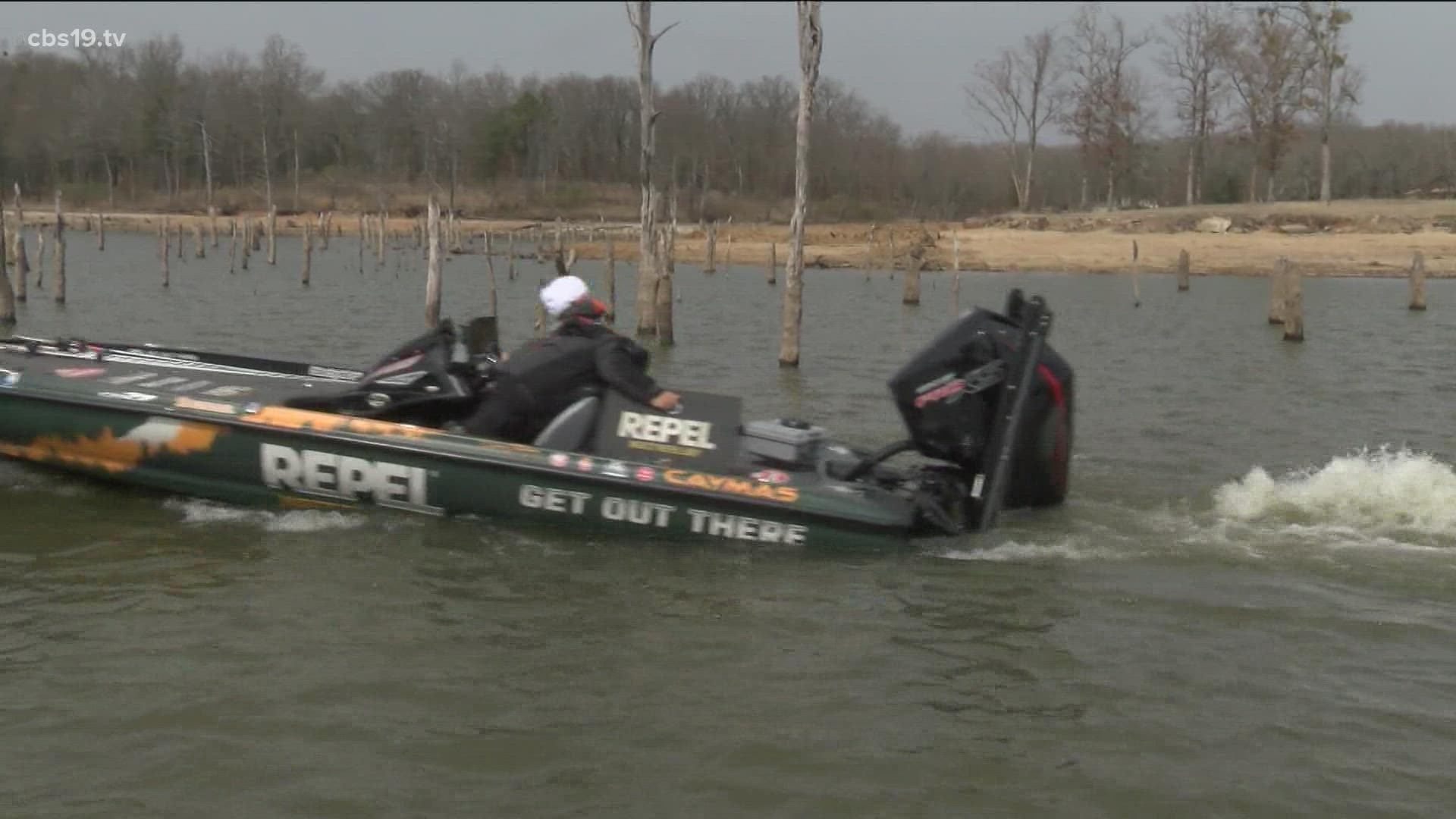QUITMAN, Texas — Major League Fishing is back at Lake Fork this week.
The last time MLF was at Lake Fork was back in 2020. But this week the Bass Pro Tour Event returns for its second tour stop of the young season. And while the focus is on the fishing, there's a whole lot of science and conservation going on behind the scenes.
On the shores of Lake Fork sits the Oak Ridge Marina. The marina is older than Lake Fork's legendary reputation for big bass. The bait shop and safe harbor for fisherman opened a 50 years ago.
Current owner, Barry Hatton, has been here a little more than a decade and says the lure of the big bass keeps customers coming back.
“I think it's just the experience that they had and liked it for number one," said Hatton. "Lake Fork is world known for big bass and number two, the experience that they have here at Oak Ridge has been a big plus for them, says Hatton."
Did you know that nearly two-thirds of the top 50 largest bass caught in Texas come from Lake Fork?
Chuck Roy is a longtime Lake Fork resident and business owner. He knows why people keep coming back and why Major League Fishing is back for another tournament.
“This is Lake Fork," Roy said. "If you fish for bass, then you know about Lake Fork. If you play golf, you know about Augusta. This is the Augusta of Major League Fishing. This is what we do here and we're proud of it."
But that great notoriety brings Lake Fork great pressure. That means a lot of people fish Lake Fork in hopes of landing a lunker like the one on display inside the Oak Ridge Marina.
If you visit Oak Ridge, you'll see a replica of a 20-pouind bass that was never caught. The would be state record-sized bass floated up dead a years ago. It proves big ones are lurking in these waters.
Major League Fishing Pro Jeff Sprague grew up on nearby Lake Tawakoni and for him making sure big bass remain in Lake Fork is vital to future of fishing in Texas.
"Texas Parks and Wildlife has a tremendous job here," Sprague said.
Here at this tournament this week, the name of the game is to catch fish. But Sprague and other pros at every Major League Fishing tour stop have conservation on their minds.
For instance, Lake Fork is considered a slot lake. That means anything between 16 and 24 inches in length has to be thrown back. So if you're fishing recreationally, you can keep five fish below 16 inches in length or you can keep one fish above 24 inches in length or a combination of the two that equals no more than a total of five fish. The long term goal of a slot lake is keep producing big bass in Lake Fork. And Major League Fishing came up with another way to protect large bass.
About 15 years ago a number of bass died during tournaments.
"It wasn't intentional, we didn't want it to happen, it just did," Sprague said.
So the Texas Parks and Wildlife Department along with East Texan fishing legend Gary Klein came up with a new tournament format aimed at minimizing stress on the fish caught during tournaments.
Gary Klein described the catch, weigh and release process during an interview last week at Lake Fork.
“We came up with a catch, weigh, release so none of the fish were traveled around in live wells and fish were caught, weighed recorded and released back into the water," Klein said.
"That is protecting the resource," Sprague said. "We don't kill any fish. We don't keep them out of the water for any lengthy period of time. And with the future of fishing as big as it is and as much as it has grown and is growing. That is what we're doing to protect the resource and that is truly the future of fishing."
And another project that will help the future of fishing is just under way at Auburn University in Alabama. Klein calls it the lunker initiative.
"It's a DNA project where Florida strain bass and largemouth bass will be studied to see which fish genetically thrive in certain bodies of water," Klein said. "It's designed to improve re-stocking efforts."
It's possible that bass caught here at Lake Fork could be used in that study. All of these efforts are aimed at keeping the outlook for big bass bright here on Lake Fork.
"The visibility that Lake Fork has really beneficial to the entire community," Roy said. "People live in Lake Fork for more often than not by choice rather than circumstance. And when they see people out here catching big fish, they're incentivized. They're excited.”
We'll be sure to follow up on the upcoming lunker initiative along with other conservation efforts here in Texas.

